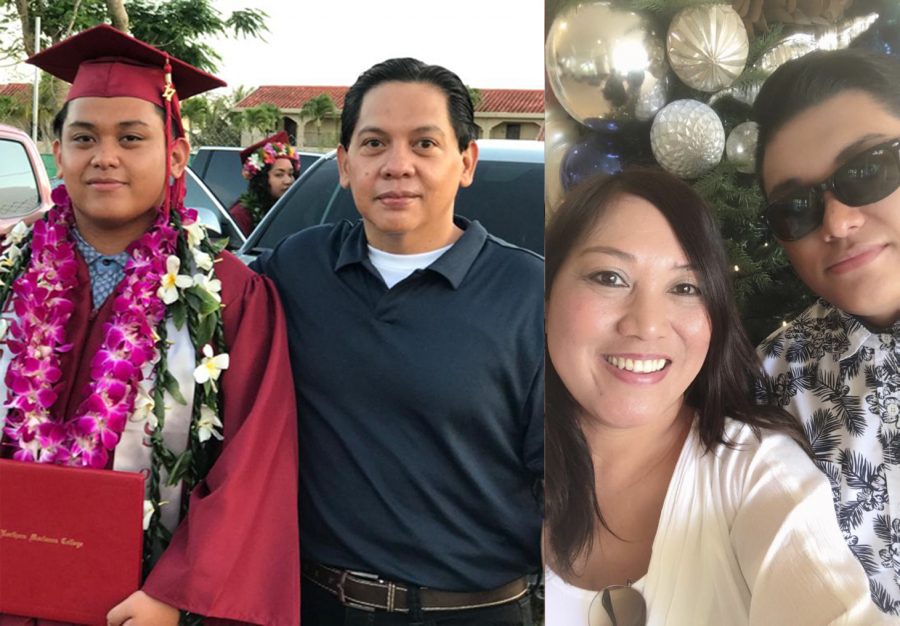Opinion | Gateway to Freedom: What Turning 21 Means to a 1st-Gen Filipino-American
Me posing with my mother and father.
Last Saturday, I turned an age that every college kid can’t wait to be: 21.
As I took my first legal sip of alcohol that fateful night, I realized that I now hold the power to truly change lives.
And no, I don’t mean buying beer for college freshmen.
With my coming of age, I am able to give my parents a gift that many today dream of – permanent residency in the United States of America.
For those who don’t know, U.S-born children of non-U.S. citizens can petition their parents for permanent residency (or a “green card”) at the age of 21. If granted, this would mean that parents (like my own) will be able to work and live freely in the United States, according to the United States Citizenship and Immigration Services.
After 21 years of waiting, the time has now come to help my parents live the good life.
My family resides on Saipan – an 18-mile-long island that is a United States commonwealth. Like the mainland, immigration policies are quite tough. In 2008, President George W. Bush signed into law a bill that would apply federal immigration laws to the Commonwealth of the Northern Mariana Islands.
Local immigration control would then cease to exist as a result, and thus created more uncertainty in job security for non-U.S. citizen workers such as my mother and father.
I remember being in the fifth grade as I waited for hours with my mother and grandma in the long lines of the now-defunct labor office for an umbrella permit: a piece of paper that protected my family from deportation during the immigration transition.
We stood in a dimly-lit hallway for hours, with the other guest workers who were wondering how many years they had left on Saipan.
Everything planned in our lives was short-term from then on. After a while, my entire family was given Commonwealth Worker permits, another type of transitional permit to help the CNMI easily retain and recruit new workers without employers having to spend more money on expensive work visas.
But again, the CW permit was also wishy-washy at times. The talk amongst the other Filipinos and guest workers was always: “Do you think we will get renewed?” The CW permit is classified as “transitional,” and was only supposed to last until 2016. However, the NMI’s economy didn’t agree with that and it had another extension, which expires in December 2019.
My parents, like many other first-generation families out there, struggled to stay on the island. Keeping their jobs and staying on island until I at least finished college was the main goal.
And now, as a senior about to graduate from college, my parents can hopefully take a well-deserved breather.
The 195 page application that my mother compiled over the last few weeks is about to be sent to Laguna Niguel in California for a USCIS adjudicator to look over.
We can only hope for the best at that point.
If denied, the $1,800 that my mother spent in fees, for just her application alone, would be considered useless. She would have to go through the whole process again, spending more money and time than necessary.
Many families like mine save up for years to get this type of cash or even take out loans from sketchy creditors just to get a small plastic green card.
If approved, my mother would not have to face the burden of wondering if she has to go back home to her home country. No more nights of stress and pacing around, wondering if her CW application was renewed.
She could finally travel around the world, and reside freely in any territory or state in the United States of America.
And best of all, she’ll be able to see me walk up on stage and get my degree.
